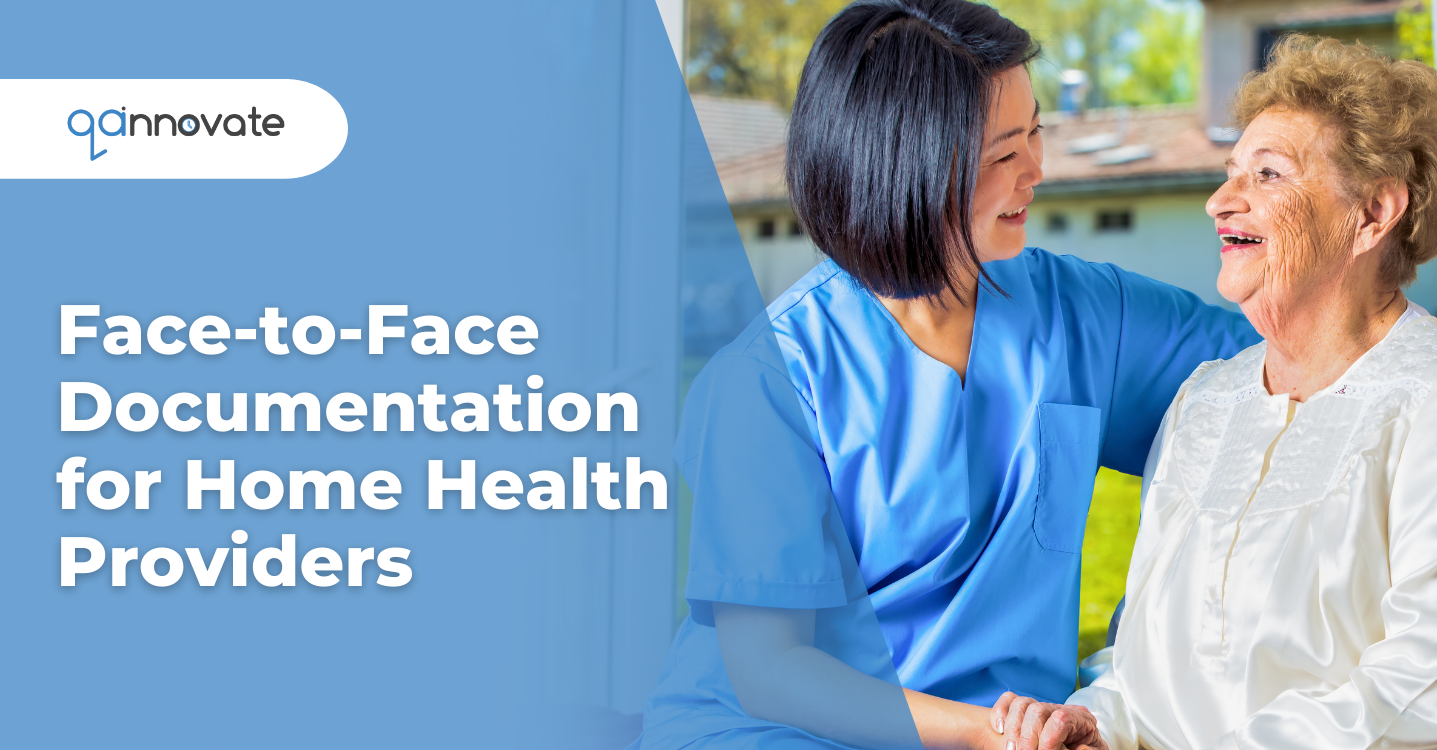Face-to-Face Documentation for Home Health Providers
A face-to-face (FTF) encounter with a patient is essential for certifying eligibility for Medicare home health services. However, documentation of face-to-face encounters continues to be a major pain point for home health agencies and one of the top reasons for Medicare and Medicaid denials.
The documentation of this encounter must be included in the start of care (SOC) certification, which is a requirement for payment. It should be related to the primary reason for the home care admission. Without a complete initial certification, subsequent episodes of home health services cannot be authorized, which can lead to claim denials.
Understanding Face-to-Face Documentation
The Centers for Medicare & Medicaid Services (CMS) requires that all home health providers obtain face-to-face (FTF) documentation from a physician or non-physician practitioner (NPP) before a patient can be certified for home health services. The FTF documentation must be related to the primary reason for the home health admission and must be completed within 90 days prior to the start of care or within 30 days after the start of care.
Face-to-face documentation is an essential process for home health agencies to ensure compliance with regulatory requirements and obtain reimbursement for services provided to patients. It involves documenting a face-to-face encounter between a qualified healthcare provider and the patient as a prerequisite for certifying the patient's eligibility for home health services.
Who is authorized to perform FTF encounters?
Medicare's guidelines state that the FTF can be performed by the following:
Certifying physician: The certifying physician is responsible for referring the patient to home health services and reviewing and signing the Plan of Care (POC).
Facility/hospitalist physician: The facility/hospitalist physician provides care for the patient in an acute or post-acute facility before their admission to home health. They also collaborate with the patient's community physician to ensure ongoing care.
Non-physician practitioners (NPPs): NPPs such as Nurse Practitioners, Clinical Nurse Specialists, Certified Nurse-Midwives, and Physician Assistants may practice under the supervision of either the certifying physician or the facility/hospitalist physician.
It is important to note that only the certifying physician or certain non-physician practitioners (NPPs) who do not have a financial relationship with the home health agency providing care to the patient are authorized to perform Face-to-Face (FTF) encounters.
Important Elements of Face-to-Face Documentation
Face-to-face encounter documentation typically consists of a concise account describing the nature of the visit. In these notes, you can typically find a thorough assessment of the patient, recording of vital signs, listing of medications and diagnosis codes, documentation of any treatments provided, and an overall assessment of the patient's condition.
The FTF documentation must include the following information:
The patient's name and date of birth
The date of the encounter
The primary reason for the home health admission
The patient's clinical condition as seen during the encounter
The physician's or NPP's assessment of the patient's homebound status and need for skilled services
If a practitioner other than the certifying physician conducts the face-to-face interaction, the certifying physician must sign and date an attestation that includes the date of the face-to-face interaction.
For the FTF documentation to be considered complete, it must show that the practitioner had an interaction with the patient that is directly related to the main reason why the patient is receiving home health services.
Additionally, it is important that these documents do not conflict with the physician's or facility's records of diagnoses and conditions, nor should they be the sole documentation relied upon to justify the need for home health.
Telehealth and Face-To-Face Encounters
Even though the PHE expired on May 11, 2023, CMS has extended the window of time in which telehealth face-to-face encounters can still be conducted until December 31, 2024. FTF documentation must demonstrate that the visit was recorded on both video and audio. Other requirements for face-to-face meetings should be satisfied within the documentation. The face-to-face encounter will not be accepted under medical review if the documentation indicates that only audio was used.
It is extremely important for home health agencies to focus on completing the face-to-face documentation requirements. Even though face-to-face encounters are just one part of the payment conditions, failing to meet these requirements could result in the denial of the entire patient chart.
Before billing for services, it is important to make sure that the documentation is thorough, meets all the necessary criteria, and is included in the patient's chart. For more information and guidance, it is recommended to visit the website of your Medicare MAC (Medicare Administrative Contractor). These websites provide additional resources and information specifically related to the face-to-face documentation requirements.

